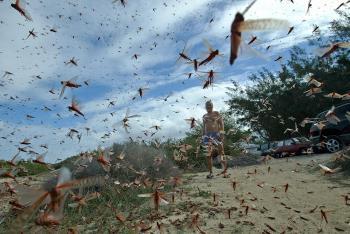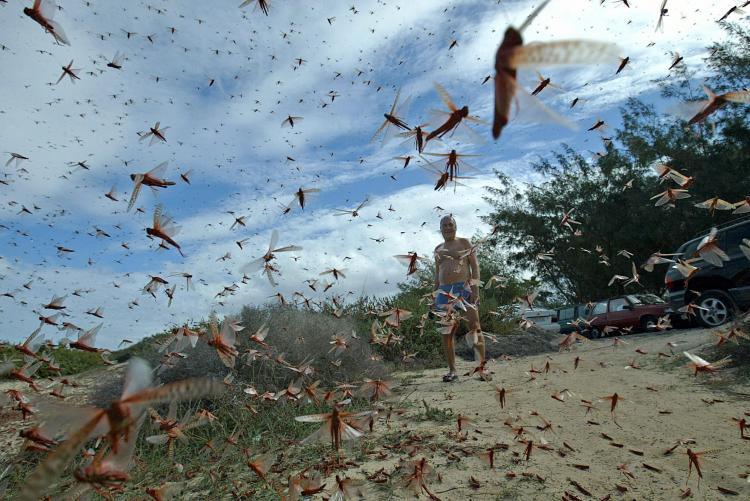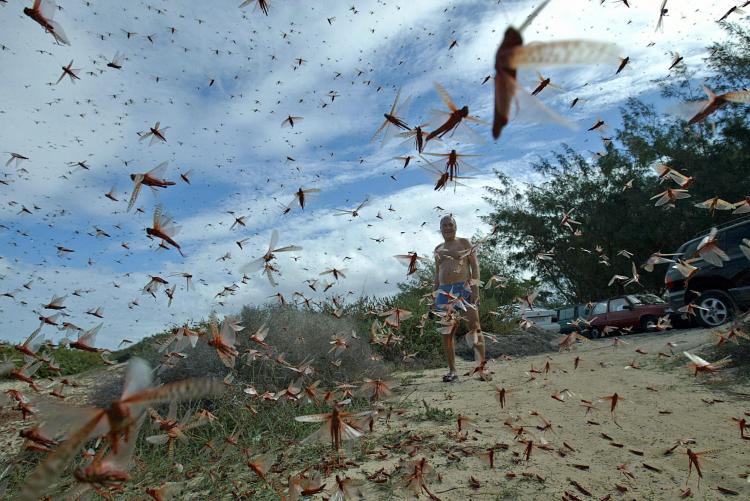Biosecurity Queensland, a government agency in Australia, is creating a taskforce to tackle the rising threat of spur-throated locusts in central Queensland’s cropping areas.
Over the coming warmer months, large swarms could develop over the region, despite months of aerial and on-the-ground control efforts by the agency.
Biosecurity officer Duncan Swan suggested the pests may head for Queensland’s Darling Downs when they start moving. The region generates millions of dollars worth of agricultural revenue each year.
“Our top priority is to protect these industries and businesses,” said Mr. Swan.
The taskforce will spring into action next week, beginning with the Barcaldine, Blackall, Charleville and Cunnamulla areas.
Eating bugs to save the planet
Meanwhile, the UN Food & Agriculture Organisation is considering a recommendation that eating locusts and other insects could reduce global warming.
Belgian researcher Arnold Van Hulls recently concluded that eating invertebrates, such as locusts and meal worms, instead of meat would significantly reduce greenhouse emissions from livestock production.
Mr. Van Hulls said most of the world already eats insects and only westerners do not. He questioned westerners’ psychological aversion about this as many people already eat shrimp which he said are comparable to insects.
The organisers of a recent kosher eating marathon in Israel included locust on the menu, along with elk and pheasant meat.
One of the participants said the stir-fried locusts were delicious and tasted “like barbecue crisps”!






